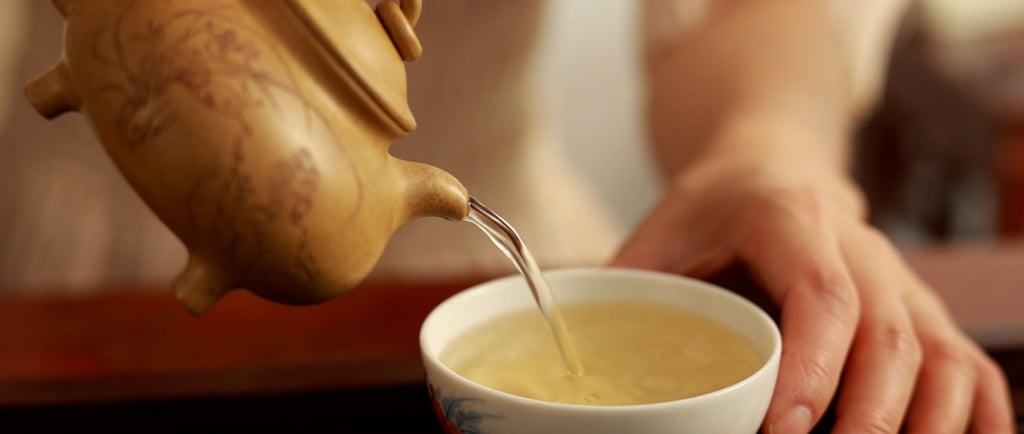6 Tea Myths You Probably Believe—But Shouldn’t
Discover the truth about tea! ☕ We bust 6 common tea myths—from "tea wrecks your stomach" to "washing tea removes pesticides." Get the facts and enjoy your tea worry-free!


Tea is one of the most beloved beverages worldwide, praised for its health benefits and deep cultural roots. But with popularity comes myths—some so ingrained that even seasoned tea lovers swear by them.
Let’s cut through the noise and bust six common tea myths that might have misled you.
Stop Believing These 6 Tea Myths—Here’s the Truth
1. Green Tea in Summer, Black Tea in Winter—Or Else?
You’ve probably heard this one: “Drink green tea in summer and black tea in winter, or you’ll mess up your health.” Sounds scientific, right? Nope.
All tea—green, black, white, oolong, or pu-erh—comes from the same plant, Camellia sinensis. The difference? Processing. Saying one type is “cooling” and another is “warming” is more about perception than science.
Green tea has more catechins, which taste astringent and make it feel refreshing.
Black tea has more theaflavins, giving it a richer, slightly sweeter profile that feels warming.
But neither is harming or healing your body differently. Pick what you enjoy, no matter the season.
2. Tea Wrecks Your Stomach
Ever heard someone say, “I drank too much tea and ruined my stomach”? Reality check: tea isn’t the villain.
Here’s how it actually works:
Tea has a mild acidity, with a pH between 5.5–7—far less acidic than your stomach acid (pH 2–3).
Caffeine in tea stimulates stomach acid production, which might cause discomfort for those with sensitive stomachs or ulcers.
For most people, drinking tea won’t cause stomach problems. If you have digestive issues, avoid drinking strong tea on an empty stomach and opt for lighter, smoother teas.
3. Tea Cures Hangovers (Spoiler: It Doesn’t)
Wishful thinking, but no drink can “cure” a hangover—including tea.
Alcohol is broken down in the liver into acetaldehyde before being processed into harmless substances. No tea can speed up this detox.
However, tea can help in other ways:
Caffeine can make you feel more alert (but doesn’t make you sober).
Tea rehydrates you, which helps with headaches and dry mouth.
Still, drinking tea after alcohol can mask drunkenness, tricking you into thinking you're fine when you’re not. So don’t use it as an excuse to drink more.
4. Drinking Tea Leads to Calcium Loss
“Drink too much tea and you’ll be calcium deficient!” This myth comes from the fact that tea contains:
Oxalates, which can bind to calcium.
Caffeine, which slightly increases calcium loss.
But here’s what really happens:
The oxalate in tea is minimal compared to vegetables like spinach.
Caffeine’s effect on calcium loss is so tiny it doesn’t matter unless you’re drinking absurd amounts of tea (we’re talking litres per day).
As long as you have a balanced diet with enough calcium, your tea habit isn’t going to hurt your bones.
5. “Washing Tea” Removes Pesticides
Many tea drinkers believe that rinsing tea leaves with hot water (a.k.a. “washing tea”) removes pesticides. This is false.
Here’s why:
If pesticides were water-soluble, they’d be washed away by rain before harvest.
The quick rinse mostly removes surface dust—not chemicals that are absorbed into the leaves.
The real way to avoid pesticides? Buy tea from reputable sources that follow safety regulations.
6. Heavy Metals in Tea—Should You Be Worried?
Tea grows in soil, so it can absorb heavy metals like lead or cadmium. But before you freak out—the risk is low if you’re buying from trusted sources.
Most heavy metals remain in the leaves, not the tea infusion.
If a tea fails safety tests, it isn’t allowed on the market.
As long as you’re getting your tea from quality sources, there’s no need to worry. If you’re concerned, go for whole-leaf teas from high-altitude regions, which tend to have lower contamination risks.
Final Thoughts
Tea has been around for thousands of years, but misinformation still lingers. Whether it’s fearing stomach damage, believing in magical detoxes, or thinking tea weakens bones, most of these myths don’t hold up to science.
And if you’re serious about levelling up your tea game, consider a Yixing zisha teapot—it’s a game-changer for tea lovers who want richer, more nuanced brews.
So, drink what you love, forget the myths, and enjoy your tea the way it’s meant to be enjoyed.
FAQs
1. Is green tea healthier than black tea?
Not necessarily. Both have antioxidants but in different forms. Pick what you enjoy.
2. Can tea really help with weight loss?
Tea might slightly boost metabolism, but it’s not a magic weight-loss drink. Diet and exercise matter more.
3. Should I avoid tea if I have kidney stones?
If you’re prone to kidney stones, limit high-oxalate foods, but normal tea drinking is fine for most people.
4. Is it bad to drink tea before bed?
If caffeine affects your sleep, switch to caffeine-free herbal teas or stick to lower-caffeine teas like white or aged pu-erh.
5. Does adding milk to tea reduce its health benefits?
Some studies suggest milk proteins might bind to tea’s antioxidants, but the effect isn’t huge. Drink it how you like.
Now, go enjoy your tea—no myths attached. ☕
